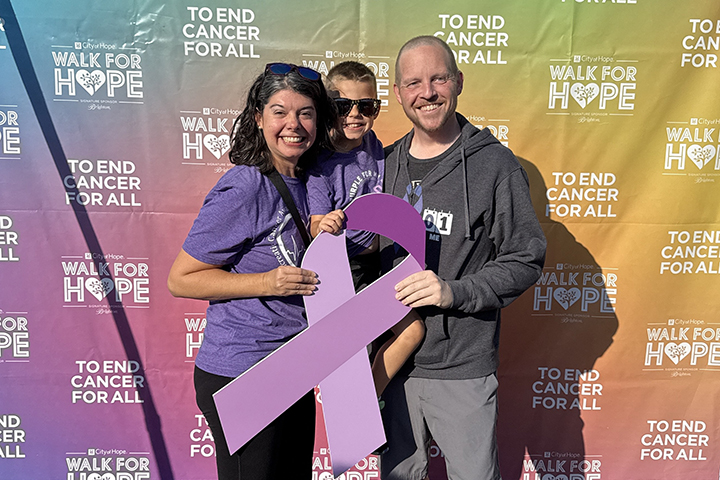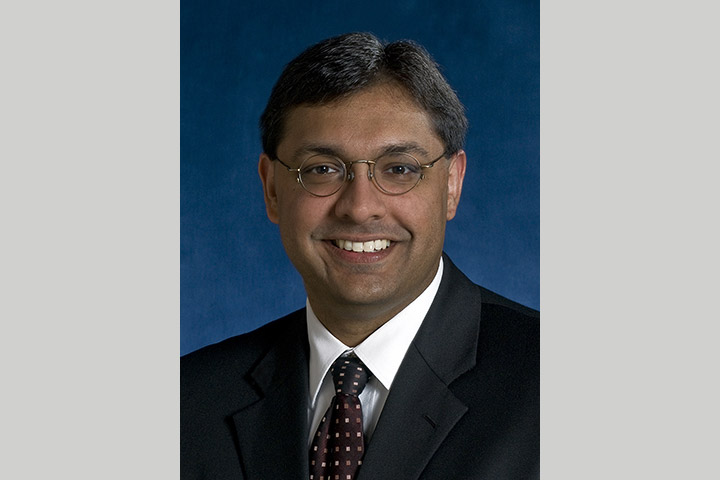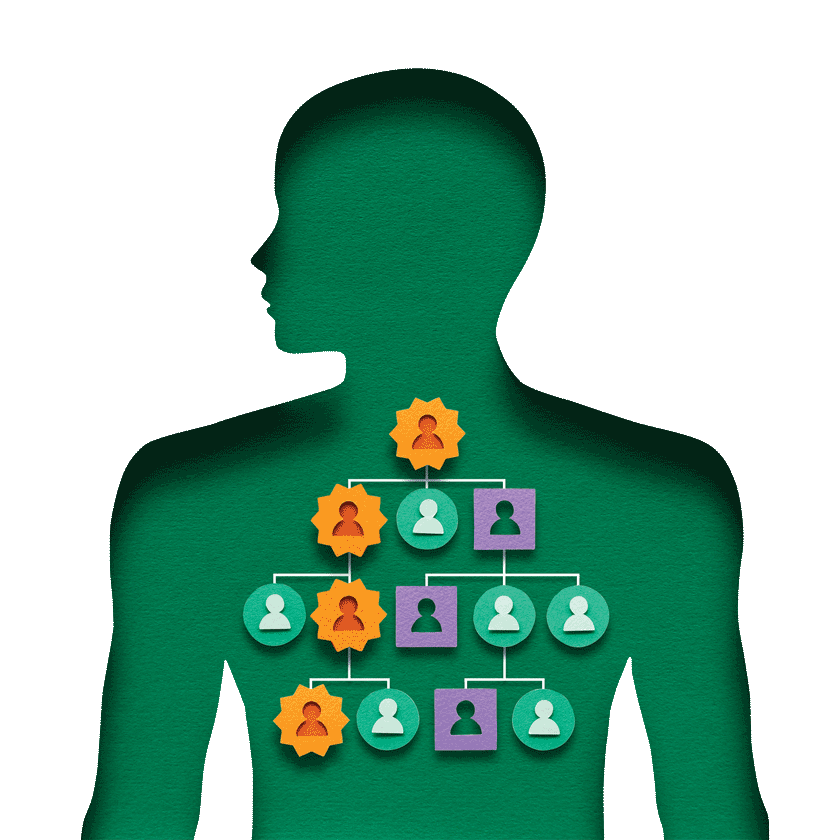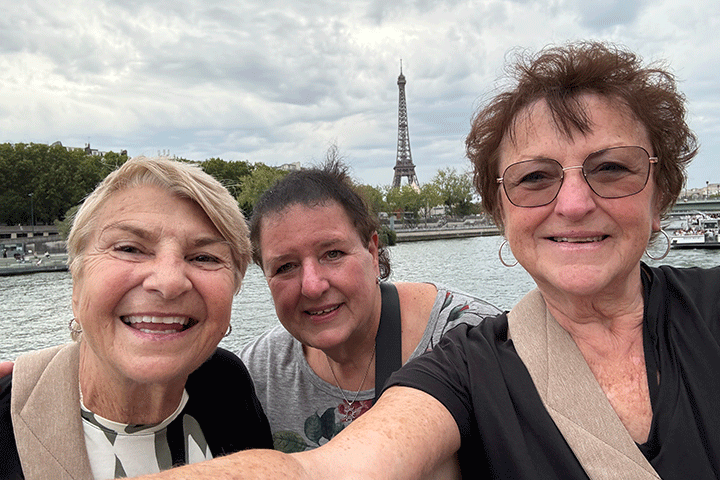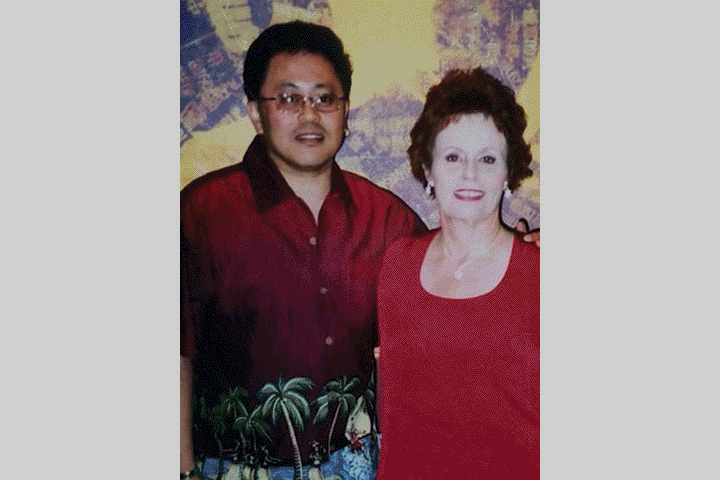Early Detection Makes All the Difference
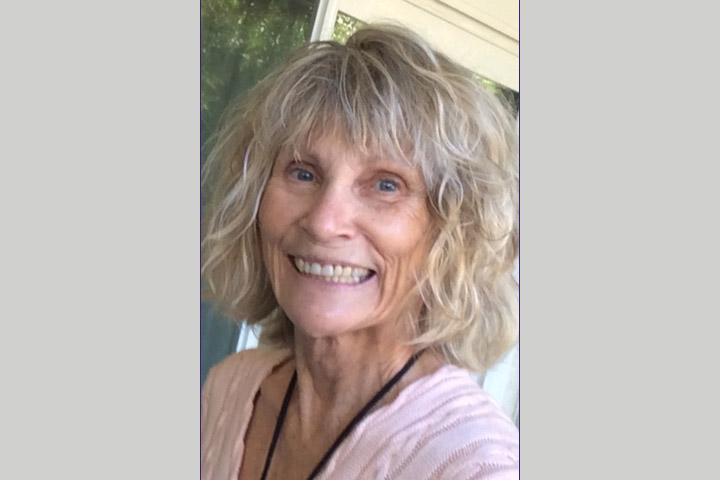
- Because of family history, annual screening allows early diagnosis
- Whipple procedure
- Family submits samples to a tumor registry
Screening for pancreatic cancer saved my life.
After developing flu-like symptoms that would not go away, my 58-year-old sister was diagnosed with pancreatic cancer in 2000. About a year later, while my sister was being treated, we noticed that our mother had lost a significant amount of weight—she also had pancreatic cancer. My mother passed away about two months after her diagnosis, and my sister lost her battle a few weeks later. I went from knowing almost nothing about the disease to being considered at high risk of getting the disease.
My primary care doctor told me to start getting tested each year for levels of CA 19-9, which can be a marker for pancreatic cancer. My first test was in April 2003 and was negative, but a year later the CA 19-9 marker came back positive. I went for an endoscopy, which confirmed that I had pancreatic cancer.
Screening Test Leads to Surgery
Because my cancer was caught early, I was able to have the Whipple procedure with Dr. John Butler at UC Irvine Medical Center, Orange, California. Recovering from this surgery was not easy—I needed a positive attitude and determination. To help me along I joined a pancreatic cancer support group, so I had people to talk to who were going through the same thing I was.
I was supposed to undergo chemotherapy for six months with fluorouracil (5-FU) and leucovorin, but I only had one week of the chemo, and then quit it. When my digestive system recovered from the surgery I began taking supplements to help my immune system.
The Future for Families with Pancreatic Cancer
Because of our family history, I worry about my daughter and my remaining sister. They both get screened yearly using the CA 19-9 blood test, which isn’t part of regular blood work. We know that the CA 19-9 marker is not perfect but it is elevated in most people with pancreatic cancer, and it is the easiest option for early detection.
Because of our family history, after my diagnosis we all sent blood work to the National Familial Pancreatic Tumor Registry at Johns Hopkins. We want to help researchers find out as much information as possible about pancreatic cancer.
As a survivor, I make time to talk to any pancreatic cancer patient looking for someone who has been through what they are going through. I also pass along some advice—to get second opinions about treatment, to go to a surgeon experienced with the Whipple rather than a general surgeon. Most of all, I tell people to urge their children and siblings to get screened, because early detection makes all the difference.
Hear Carolynn tell her story in “I Made It.”
